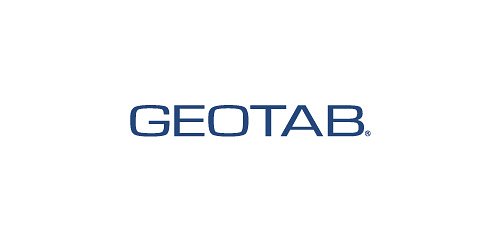
Data Drives Down Under: Geotab & ALC Forge Partnership for Smarter Australian Logistics
Geotab’s collaboration with the Australian Logistics Council signals a new era for data-driven efficiency, safety and sustainability in the nation’s complex supply chains. A deep dive into the partnership's potential.
Data Drives Down Under: Geotab & ALC Forge Partnership for Smarter Australian Logistics
Sydney, Australia – November 8, 2025 – In a move poised to reshape the Australian logistics landscape, Geotab, a global leader in connected vehicle and asset management solutions, has joined the Australian Logistics Council (ALC) as a Core Member. The partnership aims to leverage data and technology to enhance safety, productivity, and sustainability across the nation's complex supply chains.
While the initial announcement highlights collaboration and innovation, a closer examination reveals a strategic alliance designed to address growing concerns about supply chain resilience, efficiency, and environmental impact. This isn't simply a vendor joining an industry body; it’s a concerted effort to fundamentally transform how goods move across Australia using the power of connected data.
A Perfect Storm for Digital Transformation
The Australian logistics sector, like its counterparts globally, is facing unprecedented challenges. Recent disruptions, from the pandemic to geopolitical instability, have exposed vulnerabilities in existing supply chains. According to industry analysts, the need for greater visibility, agility, and efficiency has never been more acute. “The industry is increasingly recognizing that data is the key to unlocking a more resilient and efficient supply chain,” explains a logistics consultant who preferred to remain anonymous. “Traditional methods simply can’t keep pace with the demands of modern commerce.”
Geotab’s expertise in telematics and data analytics positions it as a key player in this digital transformation. Its platform collects data from vehicles and equipment, providing real-time insights into location, driver behaviour, vehicle health, and fuel consumption. By integrating this data with the ALC’s broader industry knowledge and policy advocacy, the partnership hopes to drive significant improvements across the entire logistics ecosystem.
Beyond Efficiency: A Focus on Safety and Sustainability
The partnership isn’t solely focused on boosting bottom lines. A critical component is enhancing safety standards within the industry. Telematics data can identify risky driving behaviours, such as speeding, harsh braking, and distracted driving, enabling fleet managers to provide targeted coaching and reduce the risk of accidents.
Furthermore, the collaboration places a strong emphasis on sustainability. “Reducing the environmental impact of logistics is a top priority,” states a spokesperson for the ALC. “Telematics data can help optimize routes, reduce fuel consumption, and promote the adoption of electric and hybrid vehicles.” By leveraging Geotab’s platform, the partnership aims to contribute to Australia’s commitment to reducing carbon emissions and achieving its sustainability goals.
Data Integration: The Core of the Collaboration
The real potential of this partnership lies in the integration of Geotab’s data with the ALC’s broader industry knowledge. The ALC represents a diverse range of stakeholders, including freight operators, infrastructure providers, and government agencies. By combining its policy advocacy with Geotab’s real-time data insights, the partnership can develop more effective strategies for addressing key challenges.
“The ALC has a unique ability to bring together different players in the logistics sector,” explains a supply chain analyst. “Geotab’s data provides the evidence base for informed decision-making. It’s a powerful combination.”
This data-driven approach can inform a variety of initiatives, including:
- Infrastructure Planning: Identifying bottlenecks and optimizing transportation networks.
- Regulatory Reform: Developing more effective and efficient regulations.
- Safety Standards: Implementing data-driven safety protocols.
- Sustainability Initiatives: Promoting the adoption of environmentally friendly practices.
Addressing Concerns and Navigating Challenges
While the potential benefits are significant, the partnership also faces certain challenges. Data privacy and security are paramount concerns. “It’s crucial to ensure that data is collected and used responsibly,” warns a privacy advocate. “Robust security measures and transparent data governance policies are essential.”
Another challenge is interoperability. Integrating data from different sources and systems can be complex. The partnership will need to develop standardized data formats and protocols to ensure seamless integration.
“The key to success will be collaboration and open communication,” says a logistics professional. “All stakeholders need to be involved in the process.”
A Future Shaped by Data
The partnership between Geotab and the Australian Logistics Council represents a significant step towards a more efficient, safe, and sustainable logistics future for Australia. By embracing the power of data and fostering collaboration, the partnership has the potential to transform the way goods move across the country. As the Australian economy continues to grow and evolve, data-driven logistics will undoubtedly play an increasingly important role in ensuring its continued success. The collaboration isn't just about connecting vehicles; it's about connecting an entire industry and paving the way for a smarter, more resilient future for Australian supply chains.
